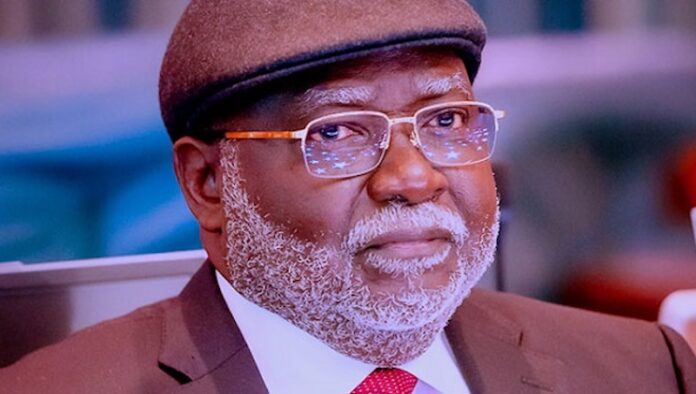The Chief Justice of Nigeria (CJN), Justice Olukayode Ariwoola has charged judicial officers to reposition courts in the country for better justice delivery.
The charge specifically handed down to magistrates and judges of the lower courts, was based on the closeness of these courts to the grassroots.
The CJN gave the charge while declaring open an induction course for newly appointed magistrates and judges of the lower courts.
“In my opinion, your positioning as magistrates and judges of the lower courts is one that is of utmost importance since your closeness to the grassroots and often as the first points of contact for the bulk of the citizenry, has the tendency to make or mar the perception of the Judiciary in the eyes of the public”, Ariwoola who was represented by Justice Lawal Garba stated.
While observing that the new judicial officers are mounting the bench at a time when several notable reforms were being made and numerous challenges facing the sector were being addressed, the CJN said they saw their appointment as an opportunity to serve, make a difference, rather than for personal gains.
According to him, they should be guided by the law always and the desire to see that justice and equity prevails at all times and in all situations.
He also advised the new magistrates and judges to pay rapt attention throughout the training session, so as to have necessary skills that would enhance their performance on the bench.
In a welcome the Administrator of the National Judicial Institute (NJI), Justice Salish Garba, challenged judges to remain very steadfast, fair to all and display a high level of integrity in the course of their job.
The administrator stressed that by their respective appointments, the new magistrates and judges, “have become persons who have subordinated or given up their personal desires and aspirations and become committed to addressing injustice, protecting the rule of law, promoting equality before the law and the human rights of the people of our dear country Nigeria.”
He disclosed that the induction course was designed to help them understand the intricacies and techniques involved in adjudication and judicial proceedings and the expectations placed on them by litigants, court users and the general public who are interested in justice, human rights and the maintenance of the rule of law.
























